In my perspective, development initiatives in Haiti often overlook barriers that hinder the Haitian diaspora from effectively investing back into their homeland. This issue becomes particularly pronounced in the context of digital infrastructure projects in Haiti, where the neglect seems to intensify significantly.
Drawing from my personal experience as a Product Manager at a major tech company, I’ve seen firsthand the importance of internationalization and localization in creating digital products that resonate with a global audience. This role involved optimizing products to ensure they cater to the linguistic, cultural, and functional needs of users worldwide. These insights are particularly relevant when considering the development of digital tools in Haiti, especially those designed to connect with the Haitian diaspora.
The Imperative of Internationalization and Localization
Internationalization and localization are more than just translating content into different languages. They involve adapting digital services to meet the cultural, linguistic, and regulatory norms of different regions. For Haiti, which is actively working towards digital transformation, these processes are crucial in creating tools that are not only accessible to locals but also to the Haitian diaspora spread across the globe.
Economic Development and Diaspora Engagement
The diaspora plays a critical role in Haiti’s economic development. They provide valuable remittances, investments, and skill transfers. Therefore, it’s imperative that digital services, especially in e-Governance, are tailored to be inclusive and accessible to Haitians living abroad. This inclusivity ensures that they can easily engage with, contribute to, and benefit from these services without facing barriers related to language or cultural misalignment.
Efficient Diaspora Navigation in eGovernance Systems
Efficient diaspora navigation in eGovernance systems is vital. It ensures that Haitians living abroad can seamlessly access government services, participate in democratic processes, and stay connected with developments in their homeland. This connectivity fosters a stronger bond between the diaspora and Haiti, encouraging more active participation and investment in the nation’s growth.
Global Use-Case Examples
Globally, there are numerous examples of the positive impact of the diaspora. For instance, the Indian government’s online portals are available in multiple languages, catering to its large diaspora. This has streamlined processes like visa applications and remittances, significantly contributing to the country’s economy. Similarly, the Philippines’ online services for overseas workers have enhanced engagement, leading to increased remittances and stronger ties to their homeland.
Conclusion
The integration of internationalization and localization in digital tools is not just a technical requirement; it’s a strategy to ensure that the Haitian diaspora remains a key stakeholder in Haiti’s growth and development. As Haiti continues to expand its digital landscape, it’s crucial that these principles are at the forefront of eGovernance and digital service deployments. This approach will not only bridge the digital divide but also strengthen the ties between Haiti and its global community, driving forward the nation’s economic and social progress.
-Whitney L.
